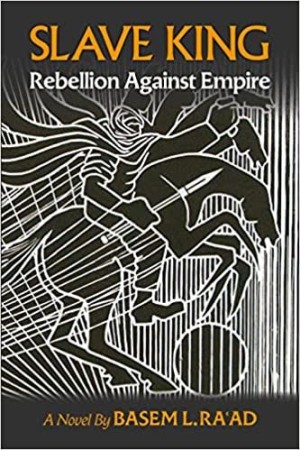Basem L. Ra’ad is a Professor at Al-Quds University in occupied East Jerusalem.
He was born in Jerusalem and has worked and taught in Bahrain, Jordan, Lebanon, Palestine, and Canada.
For the past two decades, he has been researching the ancient past of Palestine, much of which concerns the Western and Israeli appropriation of ancient languages and cultures, from the Canaanite alphabet to the Canaanite pantheon of gods and goddesses. Born in Jerusalem, Ra'ad has, since Israel's conquest of Palestine in 1948, lived in the Diaspora; down to the present, he is forced to enter the city of his birth on a tourist visa. Israel routinely refuses or complicates entry to Palestinian holders of foreign passports and to foreigners who want to go in and work for Palestinians or act in solidarity, which is to say that for most of his professional academic career, Ra'ad has lived in a state of limbo.
Hidden Histories: Palestine and the Eastern Mediterranean
In June 2010, Pluto Press published the fruit of his long years of writing and research, Hidden Histories: Palestine and the Eastern Mediterranean.
For thousands of years, the region of Palestine and the East Mediterranean has been denied an indigenous voice to narrate an inclusive history. Three major religions ascribe their origins to this part of the world, appropriating and re-appropriating Palestine or the “Holy Land” time and again.
Basem Ra‛ad provides a powerful corrective that emphasizes Palestine’s long history and dispels many old and new myths associated with it. His book provides readers with the prospect of new recognitions and self-understandings—combining scholarly discoveries of a buried past with anecdotes that retrieve people’s ancient heritage. Its contents range over issues related to Western notions and Zionist claims, the development of regional mythologies, connections between monotheism and polytheism, the invention of sacred sites, regional contributions such as the alphabet, ancient languages and place names, the construction of identities, and phenomena such as appropriation and self-colonization.
This work is essential reading for the general public and for students and academics interested in history, religion and biblical studies, politics, archaeology, anthropology, literary theory, and cultural studies.
Basem Raad
PalestineUpcoming Events

Sonallah Ibrahim's Ice
June 26, 2025
Join us for a special discussion on Sonallah Ibrah...

Arabia Felix - Alarabia Alsaida in Bayt Yakan
April 15, 2025
Arabia Felix by Thorkild Hansen, and translated by...

A writer, a vision, a journey: a conversation with Professor Ilan Pappe
March 15, 2025
This event took place on 15 March, 2025 . You may...

مسافر يبحث عن ماء
February 17, 2025
تقيم نقابة اتحاد كتاب مصرشعبة أدب الرحلات تحت رعاي...

